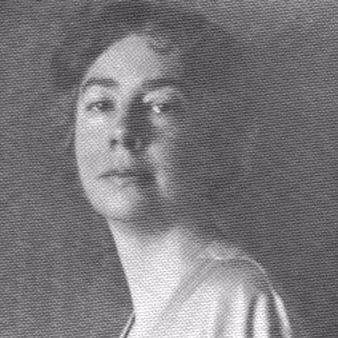I shall gather myself into myself again,
I shall take my scattered selves and make them one,
Fusing them into a polished crystal ball
Where I can see the moon and the flashing sun.
I shall sit like a sibyl, hour after hour intent,
Watching the future come and the present go,
And the little shifting pictures of people rushing
In restless self-importance to and fro.
Published:
1926
Length:
Shorty
Literary Movements:
Modernism
Anthology Years:
2023
Themes:
Identity
Poems of the Everyday
Literary Devices:
End Rhyme
when a poem has lines ending with words that sound the same
Extended Metaphor
a metaphor that extends through several lines or even an entire poem
Simile
a comparison between two unlike things using the words “like” or “as”

